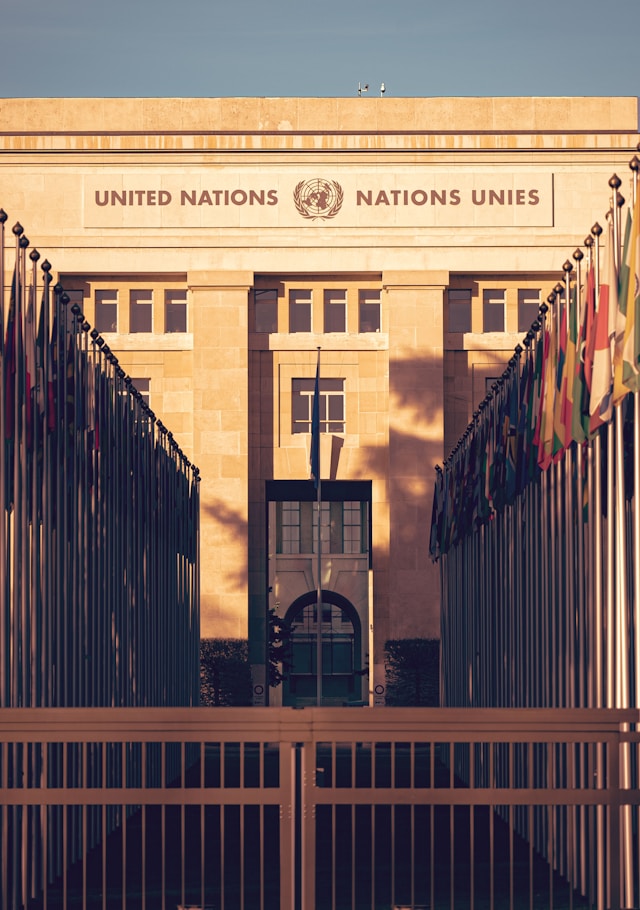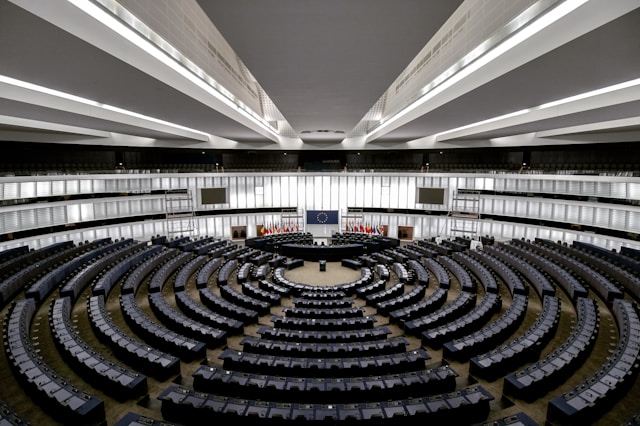Russia maintains full membership status within the United Nations and holds one of five permanent seats on the Security Council. This position grants Moscow, along with Washington, London, Paris, and Beijing, veto power over key resolutions. This authority is critical in shaping global policies.
On December 24, 1991, the Russian Federation took over the permanent seat left vacant by the Soviet Union’s dissolution. President Boris Yeltsin informed the UN Secretary-General that Moscow would uphold all rights and duties the USSR had. Eleven Commonwealth of Independent States members endorsed this transition.
This move faced no opposition from the UN’s existing members. Russia’s United Nations membership ensures a seamless continuation of the Soviet Union’s role, dating back to 1945. This transition solidified Moscow’s role in all UN bodies and specialized agencies.
Russia’s Status as a UN Member State
The Russian Federation holds a unique position within the United Nations, enjoying privileges not available to all member states. Its status as one of the five permanent members of the UN Security Council grants it significant influence over international peace and security. This role is enshrined in Chapter V, Article 23 of the UN Charter, solidifying Russia’s authority within the global community.
Unlike the 188 other UN member states without permanent Security Council seats, Russia’s membership carries immense diplomatic weight. While ten nations serve on the Security Council for two-year terms, Russia’s seat is permanent, unaffected by global or regional shifts.

Permanent Security Council Membership
The UN Security Council consists of fifteen members, divided into two categories. The five permanent members—China, France, the Russian Federation, the United Kingdom, and the United States—were established in 1945. This reflects the post-World War II power structure, designed by victorious Allied nations.
Russia, along with four other nations, holds permanent membership. This status distinguishes it from all other UN members. The ten non-permanent members, elected by the General Assembly, serve staggered terms but lack the privileges of permanent members.

Permanent membership offers significant advantages in UN operations. It ensures consistent representation on key bodies, influencing peacekeeping missions, sanctions, and addressing threats to international peace. This continuity allows Russia to shape agendas and direct the UN’s focus on global issues.
Russia’s Veto Power in the United Nations
Russia’s most significant privilege is its veto power in the UN Security Council. This authority allows any permanent member to block resolutions, regardless of support from other members. Russia, along with four others, exercises this power, requiring unanimous agreement for certain decisions.
Russian officials see the veto power as essential for balanced and sustainable decisions. They argue it prevents hasty or one-sided resolutions, stabilizing international relations. The Russian government views this power as a stabilizing force, not an obstacle to collective action.
Russia has used its veto authority in conflicts where its interests are at stake. This mirrors the behavior of other permanent members, who also block resolutions conflicting with their strategic priorities. The UN Charter does not provide a way to override a permanent member veto, making this power absolute in areas where Russia opposes a measure.
Is Russia in the UN: Membership History and Current Participation
When the Soviet Union dissolved in December 1991, Russia took its place at the United Nations. This move allowed Russia to continue the USSR’s Russia UN member state status without interruption. It also kept Russia’s permanent seat on the Security Council, marking a significant change in UN history.
Russia plays a role in various UN bodies, not just the Security Council. It has equal voting rights in the General Assembly. Russia also contributes to peacekeeping missions and participates in specialized councils, though its role has faced scrutiny in recent years.
Inheriting the Soviet Union’s UN Seat in 1991
The Soviet Union was an original UN member from October 24, 1945, holding a permanent Security Council seat. As the USSR dissolved, President Boris Yeltsin initiated a process to ensure continuity. On December 24, 1991, Yeltsin sent a letter to UN Secretary-General Javier Pérez de Cuéllar, stating that the Russian Federation would continue the USSR’s UN membership.
Eleven Commonwealth of Independent States members supported this transition. The Secretary-General circulated Yeltsin’s letter among UN members for review. With no objections, the Russian Federation took the USSR’s seat without needing a new application or Security Council vote.
Boris Yeltsin personally took the Russia member state seat at the January 31, 1992 Security Council meeting. This transition preserved Russia’s veto power and permanent council status. It avoided the complexities of a new membership application.
The legality of this succession has sparked debate among international lawyers. Yehuda Zvi Blum questioned whether Russia should have applied for new membership like other former Soviet republics. He argued that the USSR’s dissolution should have required Russia to follow the standard admission process outlined in the UN Charter.
Other legal experts defended the succession as legitimate. Rein Mullerson pointed to Russia’s territory, population, and historical continuity with the Soviet Union and Russian Empire. These factors, he argued, justified the continuity of membership. The debate reflects broader questions about state succession in international law, when a founding member dissolves into multiple entities.

Russia’s Role in the UN General Assembly
The Russia UN general assembly participation differs from Security Council membership. In the General Assembly, Russia has one vote like all other member states. This body operates on democratic principles, where no country has veto power, unlike the Security Council.
This equal footing became evident after Russia’s February 2022 invasion of Ukraine. The UN General Assembly held an emergency special session on March 2, 2022, to address the conflict. Member states adopted Resolution ES-11/1 condemning the invasion by a wide margin.
The resolution’s adoption showed that Russia cannot block Russia UN general assembly decisions with its veto power. Russia voted against the resolution, but it could not prevent its adoption. Ukrainian officials and some U.S. Congress members have called for Russia’s suspension or expulsion from the UN.
Such actions would require amending Article 23 of the UN Charter, which names Russia as a permanent Security Council member. Any Charter amendment needs approval from two-thirds of General Assembly members, including all five permanent Security Council members. Russia’s veto power effectively prevents its removal through this mechanism, creating a structural protection for permanent members.
Russia’s UN Peacekeeping and Human Rights Council Involvement
Russia contributes to Russia UN peacekeeping operations, though at lower levels than many other member states. The country has provided military observers, police personnel, and logistical support to various missions. These contributions represent one dimension of Russia’s broader engagement with UN structures beyond the Security Council.
Russia UN peacekeeping participation includes financial assessments based on the UN’s scale of contributions. Russia ranks among the top ten financial contributors to peacekeeping budgets. Yet, the country’s troop and police deployments remain modest compared to leading contributors like Bangladesh, India, and Pakistan.
The Russia UN Human Rights Council membership has generated controversy. Russia has served multiple terms on the 47-member council, addressing human rights violations globally. The council operates through elections in the General Assembly, where regional groups nominate candidates and member states vote through secret ballot.
Following the Ukraine invasion, the General Assembly voted on April 7, 2022, to suspend Russia Human Rights Council membership. The resolution passed with 93 votes in favor, 24 against, and 58 abstentions. This marked only the second time the body suspended a member, following Libya’s suspension in 2011. The vote showed that while Russia cannot be removed from the Security Council, its participation in other UN bodies remains subject to member state decisions through General Assembly procedures.
Conclusion
Russia holds a permanent seat on the UN Security Council, a legacy from the Soviet Union. This status was maintained in 1991, marking a seamless transition. The Russian Federation now wields veto power, a cornerstone of its influence.
The structure of the Security Council has come under increasing scrutiny. The call for reform has grown louder, driven by Russia’s involvement in military conflicts. Proposals for suspension or expulsion mechanisms have been floated, but they face significant hurdles.
Any attempt to alter Russia’s status would require a UN Charter amendment. Such a change needs the approval of all five permanent members. Russia’s veto power ensures its position remains secure against any reform efforts.
Russia remains active in UN activities, from General Assembly sessions to peacekeeping operations. Despite ongoing debates, the 1945 framework limits the scope for change. The legal framework for reform is narrow, reflecting the UN’s historical structure.
Russia’s role in the UN remains unchanged, despite diplomatic tensions. The post-World War II architecture continues to shape its position within the organization.
Frequently Asked Questions
Is Russia Currently a Member of the United Nations?
Yes, Russia is a full member state of the United Nations. It holds one of the five permanent seats on the UN Security Council. This includes the United States, United Kingdom, France, and China. Russia took over the Soviet Union’s seat after its dissolution in December 1991.
How Did Russia Obtain Its Permanent Security Council Seat?
On December 24, 1991, President Boris Yeltsin requested that the Russian Federation continue the USSR’s membership. Eleven Commonwealth of Independent States members supported this transition. The UN raised no formal objections, allowing Russia to assume the seat without interruption.
Does Russia Have Veto Power in the United Nations?
Yes, Russia has veto power as a permanent member of the UN Security Council. This authority allows Russia to block any substantive Security Council resolution. Russia shares this veto privilege with the United States, United Kingdom, France, and China, established in the UN Charter in 1945.
What Is the Difference Between Russia’s Security Council and General Assembly Roles?
Russia has different powers in the Security Council and General Assembly. In the Security Council, Russia has a permanent seat with veto authority. In the General Assembly, Russia participates as one of 193 member states with equal voting rights and no veto power.
Can Russia Be Removed From the UN Security Council?
Removing Russia from its permanent Security Council seat would require amending the UN Charter. This process demands consent from the permanent members themselves. Russia holds veto power over Charter amendments, effectively blocking its own removal.
Does Russia Participate in UN Peacekeeping Operations?
Russia contributes to UN peacekeeping missions and engages with various peacekeeping initiatives. Its participation in peacekeeping operations is part of its broader engagement across UN structures. Russia’s involvement demonstrates participation in multiple dimensions of UN activity.
Has Russia Been a Member of the UN Human Rights Council?
Russia has held positions on the UN Human Rights Council, though its membership has faced scrutiny. Calls for Russia’s suspension from the Human Rights Council followed its military actions. Russia’s participation in this body represents its involvement in UN specialized agencies and councils beyond its permanent Security Council seat.
How Many Times Has Russia Used Its UN Veto Power?
Russia has used its Security Council veto power numerous times, often on issues related to conflicts involving Russian interests. The Russian government defends veto authority as essential for balanced international decisions. The frequency of veto use has varied, with notable increases during certain geopolitical tensions.